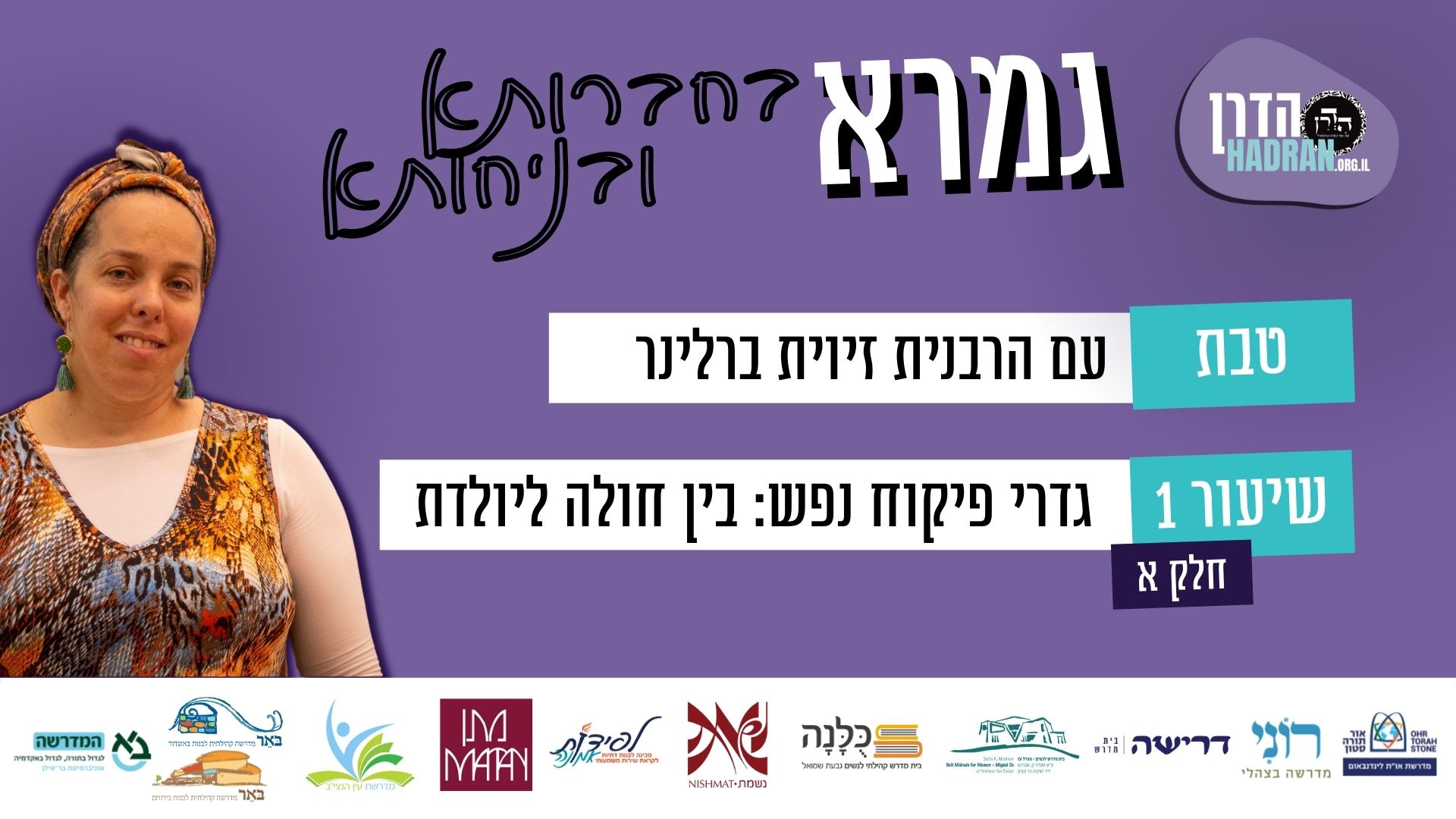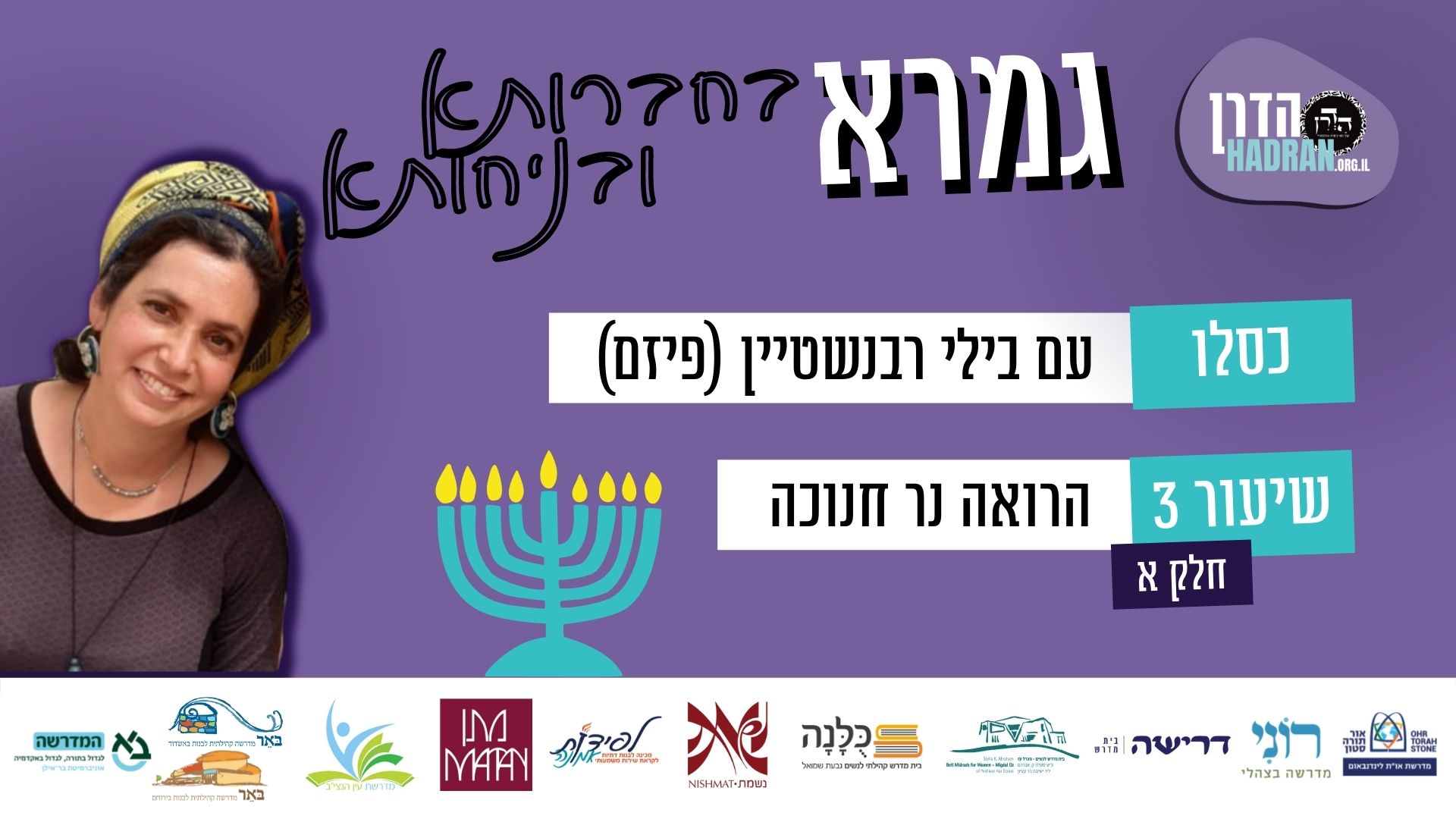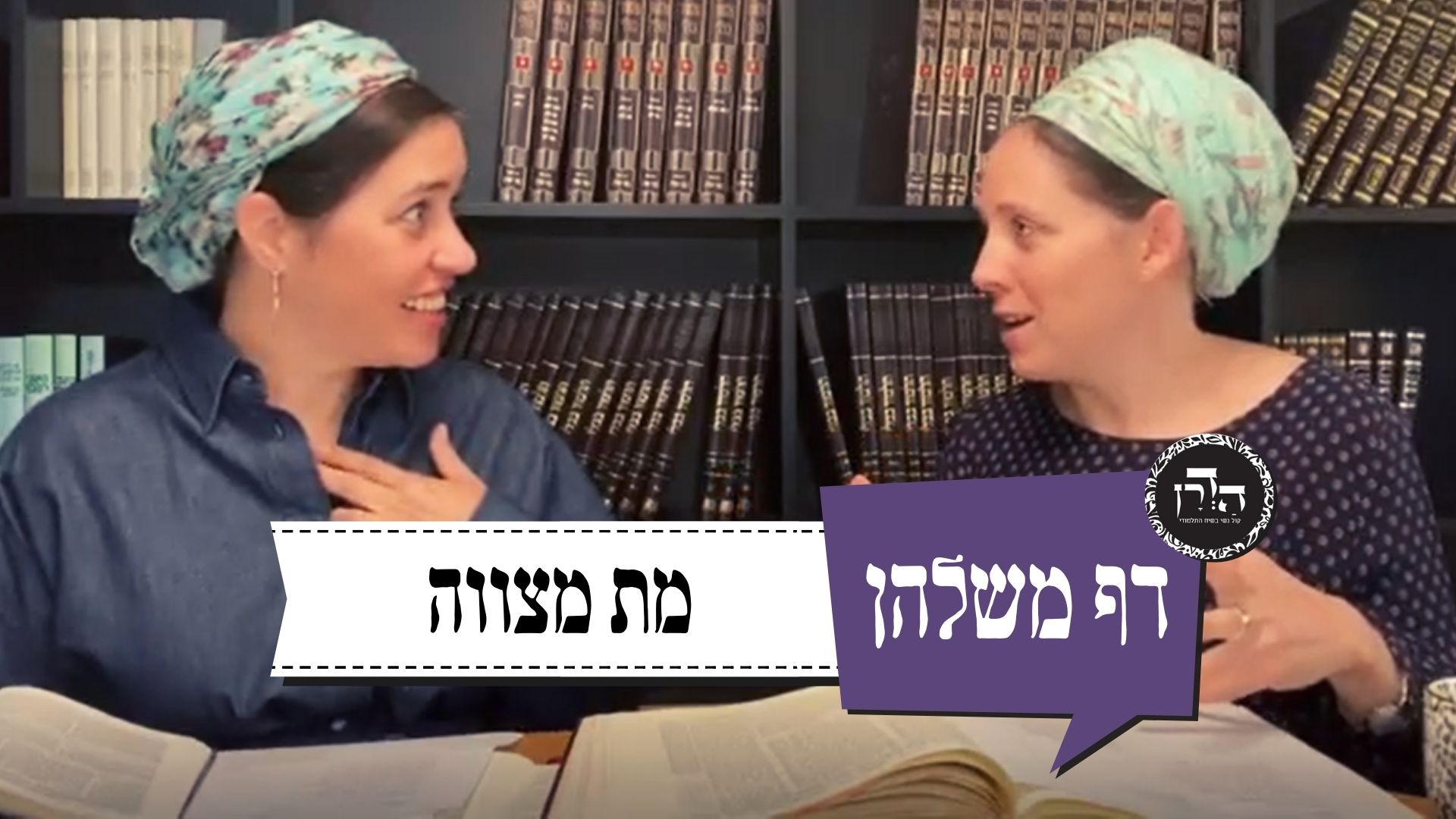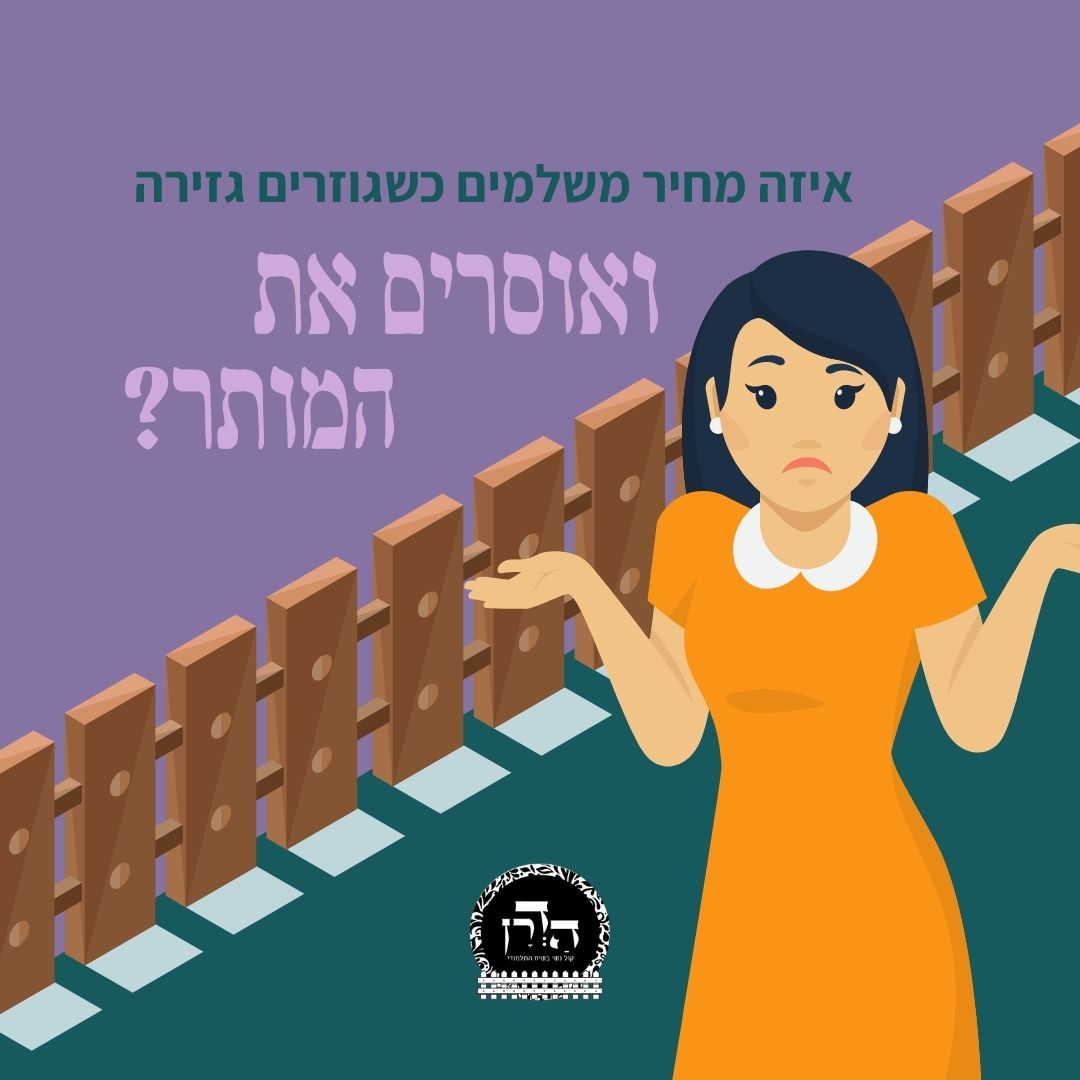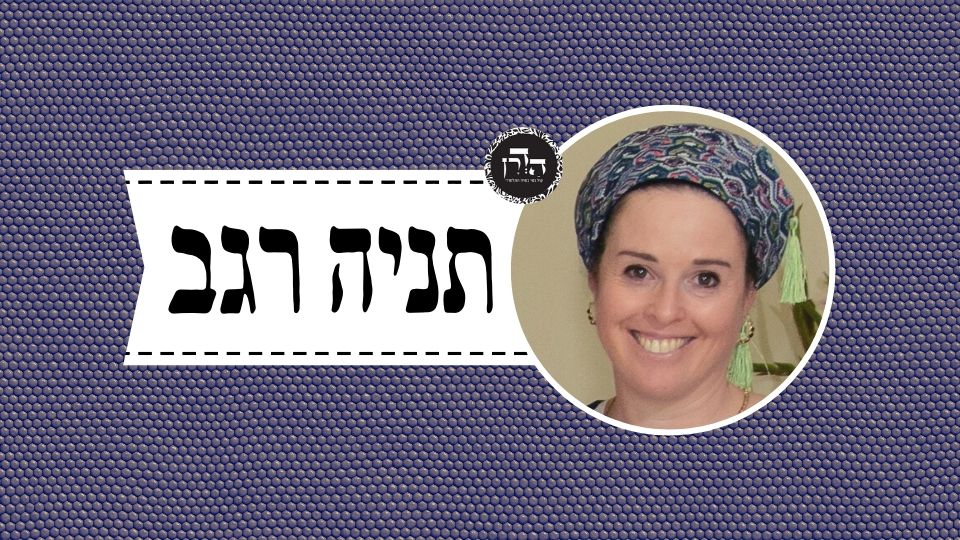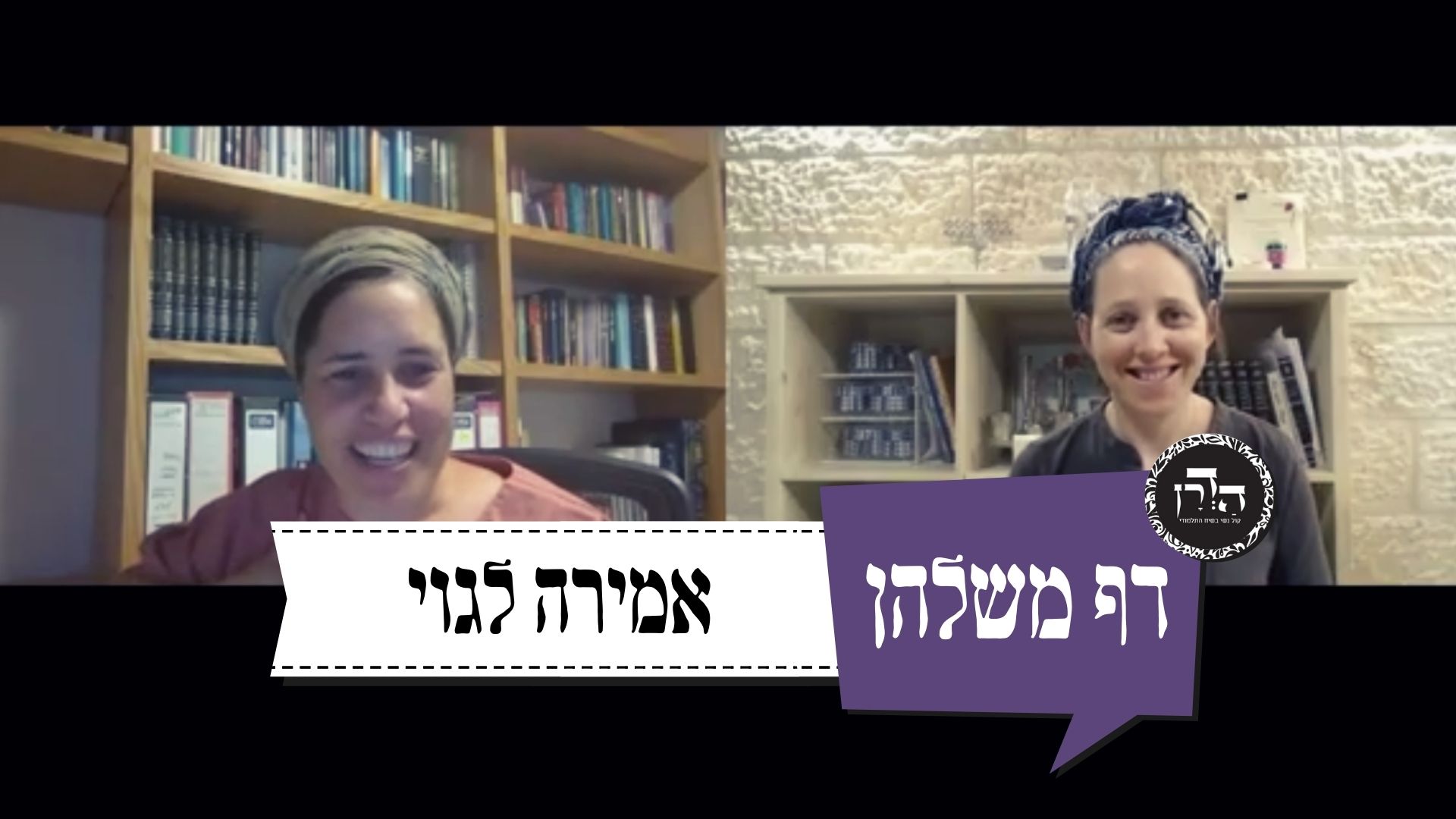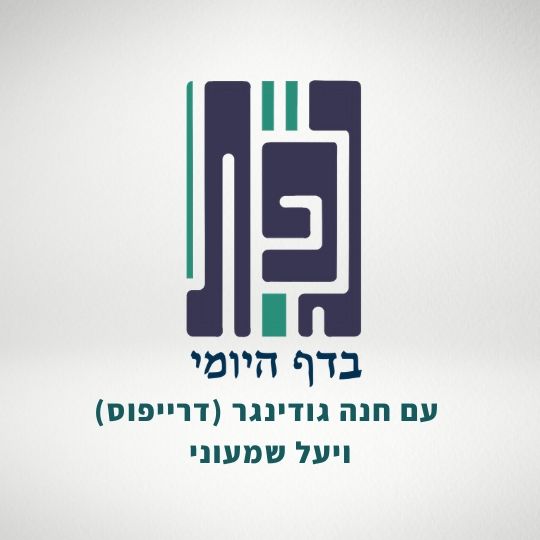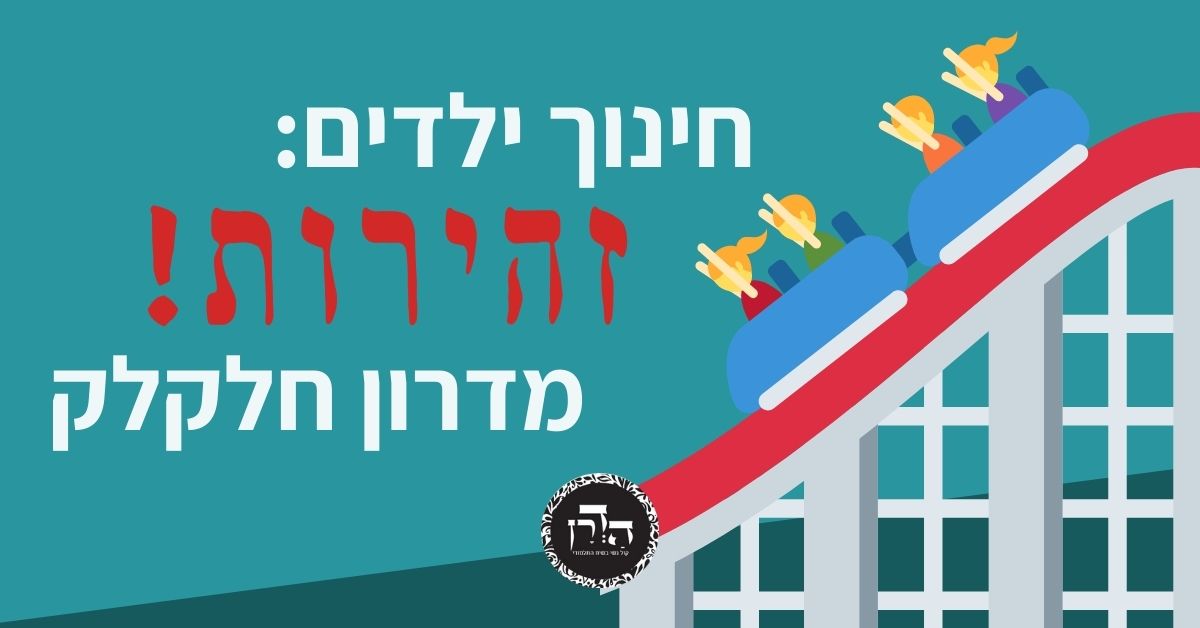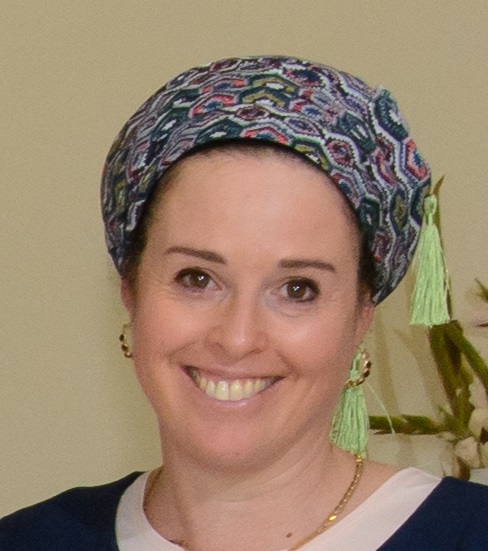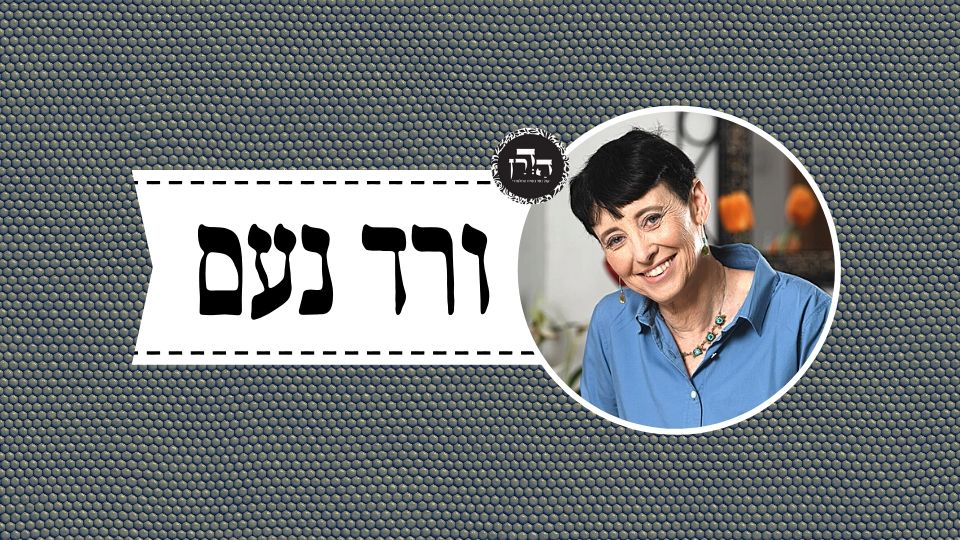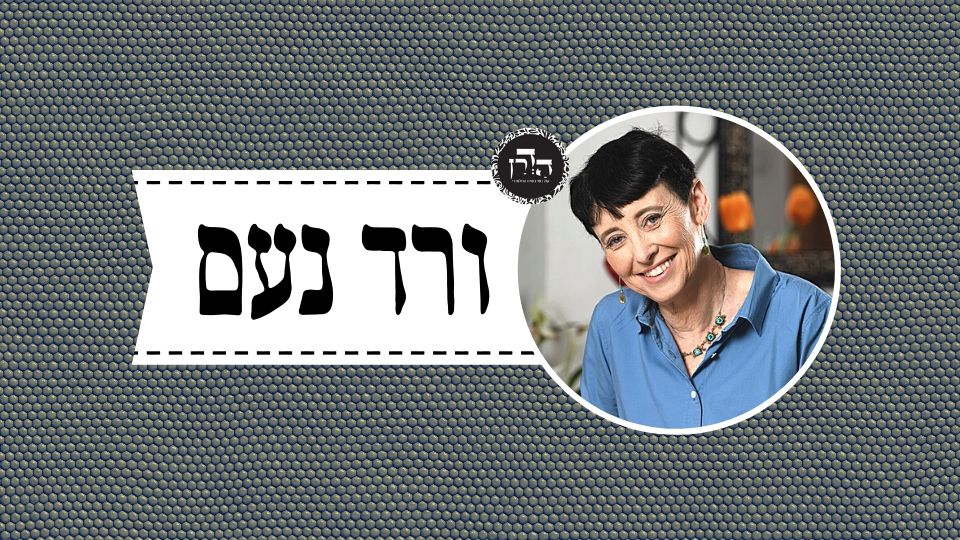שבת מז
הַנַּח לְנֵר שֶׁמֶן וּפְתִילָה, הוֹאִיל דְּנַעֲשָׂה בָּסִיס לַדָּבָר הָאָסוּר.
Leave the candle, oil, and wick, since they became a base for a prohibited object. Even Rabbi Shimon agrees that a flame burning on Shabbat is set-aside. Since it is prohibited to move the flame, moving the lamp, oil, and wick is also prohibited.
אָמַר רַבִּי זֵירָא אָמַר רַבִּי אַסִּי אָמַר רַבִּי יוֹחָנָן אָמַר רַבִּי חֲנִינָא אָמַר רַבִּי רוֹמָנוֹס: לִי הִתִּיר רַבִּי לְטַלְטֵל מַחְתָּה בְּאֶפְרָהּ. אֲמַר לֵיהּ רַבִּי זֵירָא לְרַבִּי אַסִּי: מִי אָמַר רַבִּי יוֹחָנָן הָכִי? וְהָתְנַן: נוֹטֵל אָדָם בְּנוֹ וְהָאֶבֶן בְּיָדוֹ אוֹ כַּלְכַּלָּה וְהָאֶבֶן בְּתוֹכָהּ. וְאָמַר רַבָּה בַּר בַּר חָנָה אָמַר רַבִּי יוֹחָנָן: בְּכַלְכַּלָּה מְלֵאָה פֵּירוֹת עָסְקִינַן. טַעְמָא דְּאִית בַּהּ פֵּירֵי, הָא לֵית בַּהּ פֵּירֵי — לָא?
Rabbi Zeira said that Rabbi Asi said that Rabbi Yoḥanan said that Rabbi Ḥanina said that Rabbi Romanus said: Rabbi Yehuda HaNasi permitted me to carry a coal pan with its ashes. Rabbi Zeira said to Rabbi Asi: Did Rabbi Yoḥanan actually say that? Didn’t we learn in a mishna: A person may carry his son in his hands and even if the son has a stone, which is prohibited to carry, in his hands; or, one may carry a basket with a stone inside it? And Rabba bar bar Ḥana said that Rabbi Yoḥanan said: We are dealing with a basket that is full of fruit. Due to the fruit, carrying the stone is also permitted. The reason for the leniency is because there is fruit inside the basket; however, if there is no fruit inside it, no, one may not move it. With regard to the coal pan that is filled with ashes, how can moving it be permitted according to Rabbi Yoḥanan?
״אֶשְׁתּוֹמַם כְּשָׁעָה חֲדָא״, וַאֲמַר: הָכָא נָמֵי דְּאִית בַּהּ קְרָטִין. אָמַר אַבָּיֵי: קְרָטִין בֵּי רַבִּי מִי חֲשִׁיבִי?
“He was astonished for a while” (Daniel 4:16) and could not find an answer. And, ultimately, Rabbi Asi said: Here, too, it is referring to a case where the coal pan has bits of frankincense that were not yet burned. Due to those bits, moving the pan is permitted. Abaye said: Are small bits in the house of Rabbi Yehuda HaNasi significant? Since they are not significant, they are nullified by the ashes and the mixture is entirely unsuitable for use.
וְכִי תֵימָא: חֲזוּ לַעֲנִיִּים — וְהָתַנְיָא, בִּגְדֵי עֲנִיִּים לַעֲנִיִּים, בִּגְדֵי עֲשִׁירִים לַעֲשִׁירִים, אֲבָל דַּעֲנִיִּים לַעֲשִׁירִים לָא. אֶלָּא אָמַר אַבָּיֵי: מִידֵּי דְּהָוֵה אַגְּרָף שֶׁל רֶיעִי.
And if you say: The bits are suitable for the poor. We will explain that the value of an object is determined not by its context, but by its intrinsic value. Wasn’t it taught in a baraita that there is a difference with regard to the halakhot of ritual impurity between garments belonging to poor people, which can become ritually impure even if they are very small, and garments belonging to the wealthy, which are not considered significant unless they contain a larger amount of fabric? Garments the size of poor people’s clothing are for the poor, and garments the size of rich people’s clothing are for the rich; however, clothes of the poor for the rich are not significant. Apparently, the significance of an object is determined by its context and its owner. Rather, Abaye said an alternative explanation: The halakha here is just as it is in the case of a chamber pot of feces. Since it is disgusting, removing it from the house is permitted, even though clearly there is no use for it.
אָמַר רָבָא, שְׁתֵּי תְּשׁוּבוֹת בַּדָּבָר: חֲדָא, גְּרָף שֶׁל רֶיעִי מְאִיס, וְהַאי לָא מְאִיס. וְעוֹד, גְּרָף שֶׁל רֶיעִי מִיגַּלֵּי, וְהַאי מִיכַּסֵּי. אֶלָּא אָמַר רָבָא: כִּי הֲוֵינַן בֵּי רַב נַחְמָן הֲוָה מְטַלְטְלִינַן כָּנוּנָא אַגַּב קִיטְמָא, וְאַף עַל גַּב דְּאִיכָּא עֲלֵיהּ שִׁבְרֵי עֵצִים. מֵיתִיבִי: וְשָׁוִין שֶׁאִם יֵשׁ בָּהּ שִׁבְרֵי פְּתִילָה שֶׁאָסוּר לְטַלְטֵל! אָמַר אַבָּיֵי: בְּגָלִילָא שָׁנוּ.
Rava said: There are two answers to reject this analogy: One, a chamber pot with feces is disgusting, and the coal pan is not disgusting. And furthermore: A chamber pot with feces is uncovered and smells, and the coal pan is covered. Rather, Rava said an alternative explanation: When we were at the house of Rav Naḥman we would move a coal pan [kanuna] on account of the ashes, and we did this even though there were broken pieces of wood on it. Since the ashes can be used to cover filth, it is not set-aside and the coal pan may be moved due to the ashes. Even if there were also broken sticks on the pan that are useless, nevertheless they are nullified by the ashes. The Gemara raises an objection to this last remark from that which was cited previously: And Rabbi Yehuda and Rabbi Shimon agree that if there were fragments of a wick in the lamp, that it is prohibited to move it. Apparently, these fragments are not null and render the entire lamp set-aside. Abaye said: No proof can be cited from that baraita because they taught it in the Galilee, where oil is abundant and inexpensive. That is why broken wicks are not nullified relative to the oil (Rav Nissim Gaon).
לֵוִי בַּר שְׁמוּאֵל אַשְׁכְּחִינְהוּ לְרַבִּי אַבָּא וּלְרַב הוּנָא בַּר חִיָּיא דַּהֲווֹ קָיְימִי אַפִּיתְחָא דְּבֵי רַב הוּנָא. אֲמַר לְהוּ: מַהוּ לְהַחֲזִיר מִטָּה שֶׁל טַרְסִיִּים בְּשַׁבָּת? אֲמַרוּ לֵיהּ: שַׁפִּיר דָּמֵי. אֲתָא לְקַמֵּיהּ דְּרַב יְהוּדָה, אָמַר: הָא רַב וּשְׁמוּאֵל דְּאָמְרִי תַּרְוַיְיהוּ: הַמַּחֲזִיר מִטָּה שֶׁל טַרְסִיִּים בְּשַׁבָּת — חַיָּיב חַטָּאת.
The Gemara relates that Levi bar Shmuel found Rabbi Abba and Rav Huna bar Ḥiyya, who were standing at the entrance of Rav Huna’s house. Levi bar Shmuel said to them: What is the halakha with regard to reassembling a weaver’s loom, which was typically a collapsible frame, on Shabbat? He said to him: It may well be done. He came before Rav Yehuda, asking him the same question, and Rav Yehuda said to him that Rav and Shmuel both said: One who reassembles a weaver’s loom on Shabbat is liable to bring a sin-offering, as he performed a labor prohibited by Torah law on Shabbat.
מֵיתִיבִי: הַמַּחֲזִיר קְנֵה מְנוֹרָה בְּשַׁבָּת — חַיָּיב חַטָּאת. קְנֵה סַיָּידִין — לֹא יַחֲזִיר, וְאִם הֶחֱזִיר — פָּטוּר, אֲבָל אָסוּר. רַבִּי סִימַאי אוֹמֵר: קֶרֶן עֲגוּלָּה — חַיָּיב. קֶרֶן פְּשׁוּטָה — פָּטוּר. אִינְהוּ דַּאֲמוּר כִּי הַאי תַּנָּא דְּתַנְיָא: מַלְבְּנוֹת הַמִּטָּה וְכַרְעֵי הַמִּטָּה וּלְווֹחִים שֶׁל סְקִיבָס — לֹא יַחֲזִיר, וְאִם הֶחֱזִיר — פָּטוּר,
The Gemara raises an objection to the statement of Levi bar Shmuel from the Tosefta: One who reassembles the branch of a disassembled candelabrum on Shabbat is liable to bring a sin-offering. With regard to the plasterer’s pole, which has several component parts, one may not reassemble it ab initio, and if he reassembled it, he is exempt from bringing a sin-offering, although it is prohibited. Rabbi Simai says: With regard to a rounded horn, which is a trumpet that can be dismantled and whose assembly is complicated, one who reassembled it is liable. However, a straight horn, which is easy to assemble, one who assembled it is exempt. Apparently, assembling an object that consists of several components on Shabbat is prohibited by Torah law, and one is liable to bring a sin-offering for doing so. The Gemara answers: They said that it is permitted in accordance with the opinion of this tanna, as it was taught in a baraita: A bed frame, which is a wooden frame through which the ropes of the bed were interlaced, and the legs of the bed, and the archer’s tablets [skibas], which refers to the part of a bow upon which one pulls the arrow back, if they were detached from the bed or from the bow, one may not reassemble them, and if he reassembled them he is exempt.
אֲבָל אָסוּר. וְלֹא יִתְקַע, וְאִם תָּקַע — חַיָּיב חַטָּאת. רַבָּן שִׁמְעוֹן בֶּן גַּמְלִיאֵל אוֹמֵר: אִם הָיָה רָפוּי — מוּתָּר.
However, doing so is prohibited. And one may not fasten the pieces together forcefully, and if he fastens them, he is liable to bring a sin-offering for performing a labor prohibited by Torah law. Rabban Shimon ben Gamliel says: If it was loose and could be assembled with ease, it is permitted. Rabbi Abba and Rav Huna bar Ḥiyya relied on this opinion.
בֵּי רַב חָמָא הֲוָה מִטָּה גְּלָלְנִיתָא. הֲוָה מְהַדְּרִי לַהּ בְּיוֹמָא טָבָא. אֲמַר לֵיהּ הָהוּא מִדְּרַבָּנַן לְרָבָא: מַאי דַּעְתָּיךְ — בִּנְיָן מִן הַצַּד הוּא? נְהִי דְּאִיסּוּרָא דְּאוֹרָיְיתָא לֵיכָּא, אִיסּוּרָא דְּרַבָּנַן מִיהָא אִיכָּא! אָמַר לֵיהּ: אֲנָא כְּרַבָּן שִׁמְעוֹן בֶּן גַּמְלִיאֵל סְבִירָא לִי דְּאָמַר אִם הָיָה רָפוּי — מוּתָּר.
The Gemara relates: In the house of Rav Ḥama, Rava’s grandfather, there was a collapsible bed, similar to a weaver’s loom, and they would reassemble it on a Festival. One of the Sages said to Rava: What is your opinion? Do you hold that this is allowed because it is building in an atypical manner? In other words, one is not performing the prohibited labor of building since it is was not performed in the standard manner? Although there is no Torah prohibition, there is, in any case, a rabbinic prohibition. Rava said to him: I hold in accordance with the opinion of Rabban Shimon ben Gamliel who said that if it were loose, it is permitted even ab initio.
מַתְנִי׳ נוֹתְנִין כְּלִי תַּחַת הַנֵּר לְקַבֵּל נִיצוֹצוֹת, וְלֹא יִתֵּן לְתוֹכוֹ מַיִם מִפְּנֵי שֶׁהוּא מְכַבֶּה.
MISHNA: One may place a vessel beneath the oil lamp in order to receive burning sparks of oil that fall from the lamp so that they will not cause a fire. And he may not place water into the vessel because he thereby extinguishes the sparks.
גְּמָ׳ וְהָא קָמְבַטֵּל כְּלִי מֵהֵיכָנוֹ! אָמַר רַב הוּנָא בְּרֵיהּ דְּרַב יְהוֹשֻׁעַ: נִיצוֹצוֹת אֵין בָּהֶן מַמָּשׁ.
GEMARA: The Gemara asks: How is it permitted to position this vessel to receive the sparks, doesn’t he thereby negate the vessel’s preparedness? It is no longer prepared for any use on Shabbat as the sparks accord it set-aside status. The opinion that negating the preparedness of a vessel is prohibited has already been stated. Rav Huna, son of Rav Yehoshua, said: Sparks have no substance. They burn immediately and do not leave behind any trace of oil in the vessel. Therefore, the vessel remains suitable to be moved.
וְלֹא יִתֵּן לְתוֹכוֹ מַיִם מִפְּנֵי שֶׁהוּא מְכַבֶּה: לֵימָא תְּנַן סְתָמָא כְּרַבִּי יוֹסֵי, דְּאָמַר גּוֹרֵם לְכִיבּוּי — אָסוּר.
And we also learned in the mishna that one may not place water into the vessel situated beneath the candle because he thereby extinguishes the sparks. The Gemara remarks: Is that to say that we learned an unattributed mishna in accordance with the opinion of Rabbi Yosei, who said that even an action that causes extinguishing indirectly is prohibited? The extinguishing in this case, where water was placed into a vessel, was not accomplished by means of a direct action. His action only caused it to extinguish indirectly.
וְתִסְבְּרָא? אֵימוֹר דְּאָמַר רַבִּי יוֹסֵי — בְּשַׁבָּת, בְּעֶרֶב שַׁבָּת מִי אָמַר? וְכִי תֵּימָא הָכָא נָמֵי בְּשַׁבָּת, וְהָתַנְיָא: נוֹתְנִין כְּלִי תַּחַת הַנֵּר לְקַבֵּל נִיצוֹצוֹת בְּשַׁבָּת, וְאֵין צָרִיךְ לוֹמַר בְּעֶרֶב שַׁבָּת. וְלֹא יִתֵּן לְתוֹכוֹ מַיִם מִפְּנֵי שֶׁהוּא מְכַבֶּה — מֵעֶרֶב שַׁבָּת, וְאֵין צָרִיךְ לוֹמַר בְּשַׁבָּת. אֶלָּא אָמַר רַב אָשֵׁי: אֲפִילּוּ תֵּימָא רַבָּנַן, שָׁאנֵי הָכָא — מִפְּנֵי שֶׁמְּקָרֵב אֶת כִּיבּוּיוֹ.
The Gemara rejects this question in astonishment: And how can you understand it in that manner? Say that Rabbi Yosei said that indirectly causing extinguishing is prohibited on Shabbat; on Shabbat eve did he say this? And if you say that here, too, it is referring to a case where he placed water in the vessel on Shabbat, wasn’t it taught in a baraita: One may place a vessel underneath an oil lamp to receive sparks that fall from the lamp on Shabbat, and, needless to say, placing it there is permitted on Shabbat eve? And one may not put water into the vessel because he will thereby extinguish the spark, even if he placed it there on Shabbat eve, and, needless to say, doing so is prohibited on Shabbat itself. Apparently, the prohibition in the mishna is not at all connected to Rabbi Yosei’s approach. Rather, Rav Ashi said: Even if you say that this mishna is in accordance with the opinion of the Rabbis, it is different here because, in this case, he is not only causing the spark to extinguish. He is hastening its extinguishing, as the sparks are extinguished immediately when they fall into the water (Rabbeinu Ḥananel). In this matter even the Rabbis would prohibit doing so.
הדרן עלך כירה
מַתְנִי׳ בַּמֶּה טוֹמְנִין וּבַמָּה אֵין טוֹמְנִין? — אֵין טוֹמְנִין לֹא בַּגֶּפֶת וְלֹא בַּזֶּבֶל, לֹא בַּמֶּלַח וְלֹא בַּסִּיד וְלֹא בַּחוֹל — בֵּין לַחִין בֵּין יְבֵשִׁין.
When a pot is removed from the fire on Shabbat eve it may be insulated in materials that preserve its heat, but not in materials that increase its heat. Raising the temperature of a pot is tantamount to cooking. The mishnayot that follow list those materials in which such a pot may be insulated on Shabbat eve and those materials in which it may not be insulated.
MISHNA: In what may one insulate a pot of cooked food on Shabbat eve, and in what may one not insulate it? One may neither insulate it in the solid residue of produce that has been pressed free of its oil, nor in manure, nor in salt, nor in lime, nor in sand, whether those materials are moist or whether they are dry. All of these materials spontaneously generate heat when piled for an extended period. Therefore, they add heat to a pot insulated in them.
וְלֹא בַּתֶּבֶן וְלֹא בַּזַּגִּין וְלֹא בַּמּוֹכִין וְלֹא בָּעֲשָׂבִין — בִּזְמַן שֶׁהֵן לַחִין, אֲבָל טוֹמְנִין בָּהֶן כְּשֶׁהֵן יְבֵשִׁין.
And one may neither insulate a pot in straw, nor in the residue of grapes that have been pressed for their juice, nor in soft material, e.g., from tattered clothing, nor in grass, when these materials are moist. However, one may insulate a pot in them when they are dry.
גְּמָ׳ אִיבַּעְיָא לְהוּ: גֶּפֶת שֶׁל זֵיתִים תְּנַן, אֲבָל דְּשׁוּמְשְׁמִין שַׁפִּיר דָּמֵי, אוֹ דִילְמָא דְּשׁוּמְשְׁמִין תְּנַן וְכָל שֶׁכֵּן דְּזֵיתִים?!
GEMARA: A dilemma was raised before the Sages: Did we learn with regard to the residue of olives in the mishna, but the residue of sesame seeds that were pressed for their oil, which produces less heat, may well be used for insulating food on Shabbat eve? Or, perhaps, we learned with regard to the residue of sesame in the mishna, and all the more so insulating food in the residue of olives is prohibited?
תָּא שְׁמַע, דְּאָמַר רַבִּי זֵירָא מִשּׁוּם חַד דְּבֵי רַבִּי יַנַּאי: קוּפָּה שֶׁטָּמַן בָּהּ — אָסוּר לְהַנִּיחָהּ עַל גֶּפֶת שֶׁל זֵיתִים. שְׁמַע מִינַּהּ שֶׁל זֵיתִים תְּנַן.
Come and hear a resolution to this dilemma from what Rabbi Zeira said in the name of one of the Sages of the school of Rabbi Yannai: With regard to a basket in which one insulated food in a permissible manner, e.g., in dry soft material or the like, it is prohibited to place it upon the residue of olives. Conclude from this that we learned with regard to the residue of olives in our mishna; however, insulating food in the residue of sesame is permitted.
לְעוֹלָם אֵימָא לָךְ לְעִנְיַן הַטְמָנָה — דְּשׁוּמְשְׁמִין נָמֵי אָסוּר, לְעִנְיַן
The Gemara rejects this proof: Actually, I can say to you that with regard to actual insulation, the residue of sesame is also prohibited. However, with regard to



